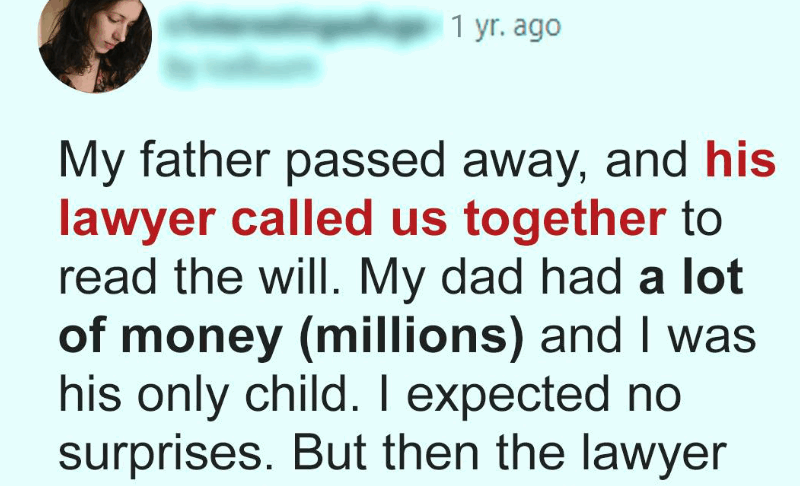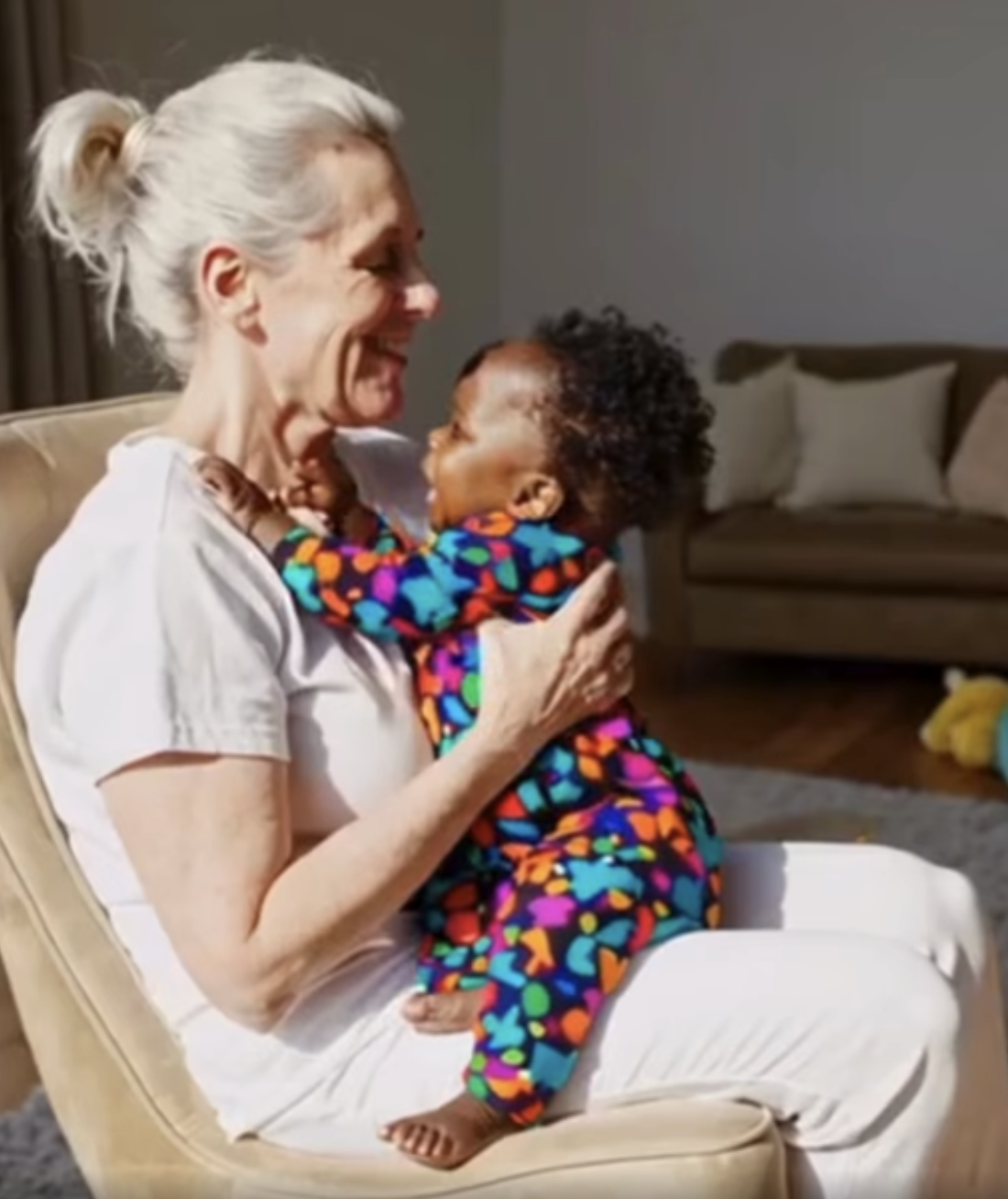The day began with something as ordinary as cutting toast into triangles.
For forty-seven years, my husband Harold has preferred his toast sliced that way. It never seemed important until his stroke six months earlier, when the smallest routines became anchors in a world that suddenly felt fragile. The left side of his face still droops, a lasting reminder of the damage, but his eyes remain sharp. At six in the morning, in our Buckhead townhouse, he watched me with that familiar clarity as sunlight crept across the magnolia trees outside our window.
“Betty, I’m running low on medication,” he murmured. Once he had a deep, commanding voice; now, it came out as a soft whisper.
I turned toward the counter. The orange prescription bottle sat beside the pill organizer I refill every Sunday. Lisinopril, 10 milligrams. His cardiologist had warned that missing even one dose could be dangerous—possibly fatal.
The bottle was almost empty. Anxiety tightened in my chest.
“I’ll pick it up today,” I promised, kissing his forehead. “Right after I finish this brief.”
A faint smile tugged at his mouth. “You always take care of me.”
In nearly five decades of marriage, I had never broken a promise. I wasn’t going to start.
I spent the morning reviewing documents for a pro bono case. Retirement from the federal bench hadn’t dulled my mind or my sense of responsibility. At sixty-eight, after a lifetime maneuvering through institutions that underestimated me—first as a woman, then as a Black woman—I had earned my authority, my reputation, and a peaceful home in one of Atlanta’s most affluent neighborhoods.
At 2:15 p.m., I drove to the CVS on Peachtree Road, the same one I had visited regularly for the last three years. Marcus, the manager, always asked about Harold. Jennifer, the young technician, knew I preferred large-print labels. This place felt safe.
I straightened the navy blazer I once wore in court. My reading glasses hung from the silver chain my clerks had given me when I retired. My wedding ring felt steady on my hand. I was simply a wife picking up a prescription.
Inside, the store was busy—an impatient businessman, a young mother soothing a toddler. I took my place in line, holding my insurance card, my ID, and the prescription number—RX4471892—by memory.
What I didn’t know was that Officer Jake Williams was sitting outside. I didn’t know his supervisor had labeled this pharmacy a “high activity zone.” I didn’t know he had two arrests already and needed one more to complete his quota. I didn’t know he was scanning for an easy target.
He saw me.
I had just reached the counter when the automatic doors opened. Heavy boots hit the floor. A shadow fell over me.
“Step away from that counter.”
The voice was sharp and aggressive.
I turned. “Excuse me?”
The young white officer—J. WILLIAMS—stared back with cold eyes. “Move. Now.”
“Officer,” I said calmly, the same tone I used to de-escalate chaotic courtrooms. “I’m here to pick up my husband’s medication.”
He snapped, “I said move, Grandma.”
The word was meant to reduce me, to make me small.
Before I could react, he grabbed my arm and shoved me so violently my body hit the pharmacy wall. Air rushed from my lungs. My reading glasses flew from their chain and cracked on the tile.
The bottle Marcus had handed me fell, the cap bursting open. Harold’s Lisinopril scattered across the floor.
“That’s my husband’s medication!” I cried.
“You people always have excuses,” he sneered.
He twisted my arm behind my back with such force that pain shot through my shoulder. I felt something tear.
“You’re hurting me,” I gasped.
“Good. Maybe you’ll learn.”
Cold metal closed around my wrists. Each click of the handcuffs felt like a blow. They cut into my skin, pressing my wedding ring hard against the bone.
“Officer, this is a misunderstanding. I have identification. Medical authorization.”
“Be quiet.”
Silence fell around us. Phones were raised everywhere. People filmed. Some even laughed. To them, I wasn’t a wife trying to collect heart medication—I was a spectacle.
Marcus rushed out. “Officer, please! Mrs. Sanders is a regular. I can show you the prescription—”
“Step back!” Williams raised his taser. Marcus froze.
Williams dragged me through the store, past cosmetics, summer displays, and rows of people recording every step. My blazer was wrinkled, my shoulder throbbed, my glasses dangled broken.
He crushed Harold’s pills under his boot.
Outside, the Atlanta sun felt harsh. Pedestrians stared. A delivery driver recorded. Humiliation settled over me like ice.
He marched me to his patrol car—parked illegally in a handicapped spot.
Jennifer ran after us, crying. “You can’t arrest her! That’s her husband’s heart medication!”
“Watch me,” he said.
He shoved me into the back seat. The smell of sweat and chemicals was overwhelming.
He sat in the front, whistling, pleased. He began preparing a report that would justify his assault.
He looked at me through the rearview mirror with contempt.
He thought he had put an elderly Black woman in her place.
He had no idea who I was.
I had spent forty years defining my place—and it wasn’t the back of a patrol car.
This was not the end. This was the beginning.
PART 2
The engine rumbled beneath me as I sat in the cramped back seat. Pain radiated down my arm. But when I finally spoke, my voice was steady.
“Officer Williams.”
“Save it for the judge,” he said without looking back.
I let the silence stretch. Then:
“I am the judge.”
His hand froze on the radio.
“What did you say?”
“Retired Federal Judge Elizabeth M. Sanders,” I stated. “Northern District of Georgia. Twenty-three years on the bench.”
His face drained of color.
“Run my name,” I instructed. “You’ll find my commission, my clearance, and my confirmation by the Senate.”
His fingers trembled as he typed. I watched fear dawn on his face as he read. He found everything. Cases I had presided over. Sentences I had handed down.
Especially those involving police misconduct.
“You… you didn’t identify yourself,” he stuttered.
“I shouldn’t have to,” I replied. “I’m a citizen picking up heart medication for my husband. Or is ‘judge’ the only identity that stops you from assaulting a Black woman?”
He scrambled out of the car, unlocking the cuffs with shaking hands.
When they fell away, red marks circled my wrists.
He offered help. I ignored it. I stood myself, straightened my blazer, and walked past him.
“You have no idea what you’ve done,” I told him.
PART 3
I returned home shaken. Harold didn’t answer when I called his name.
I found him collapsed on the kitchen floor.
The missed dose. The stress. It was too much.
In the hospital, machines beeped relentlessly. Doctors spoke of a hypertensive crisis.
Meanwhile, videos of my arrest went viral. The Atlanta Police Department issued statements defending Williams. They called my claims “activism.”
Then came the threats. Anonymous calls. Cars idling outside my home. A dead rat left at my door.
Captain Morris, Williams’s supervisor, visited the hospital. He offered a “quiet resolution.” Williams would retire with a full pension, no wrongdoing admitted.
He placed papers on the table. He wanted my silence.
I nearly agreed—until Harold opened his eyes and whispered one word:
“Fight.”
And I did.
A reporter, Sarah Brown, uncovered Williams’s history: twelve complaints, all dismissed. Then she found more—an internal memo revealing quota pressure.
Victims came forward. Other elderly Black residents Williams had targeted.
Then a whistleblower leaked the final piece: an audio recording from a bodycam.
Williams’s voice filled the room:
“Elderly Black female. Perfect stats padding.”
“These types fold under pressure.”
“Who’s going to believe some old Black lady over a cop?”
The city erupted.
The FBI opened an investigation. Williams and his partner were fired. Captain Morris was suspended.
The Atlanta City Council called an emergency hearing.
I walked in with Harold at my side.
The audio played for everyone. The room fell silent.
I took the podium.
“Officer Williams, you asked who would believe an old Black woman.”
I gestured to the room.
“The answer is everyone.”
By the end, Williams resigned. Months later, he went to prison. Rodriguez followed. Morris lost his pension.
The city banned arrest quotas. Victims received settlements.
One year later, I returned to the CVS. Marcus greeted me warmly. Jennifer asked about Harold, who waited in the car with a soft smile.
I bought his Lisinopril. RX4471892.
I had learned my place.
My place is everywhere.




